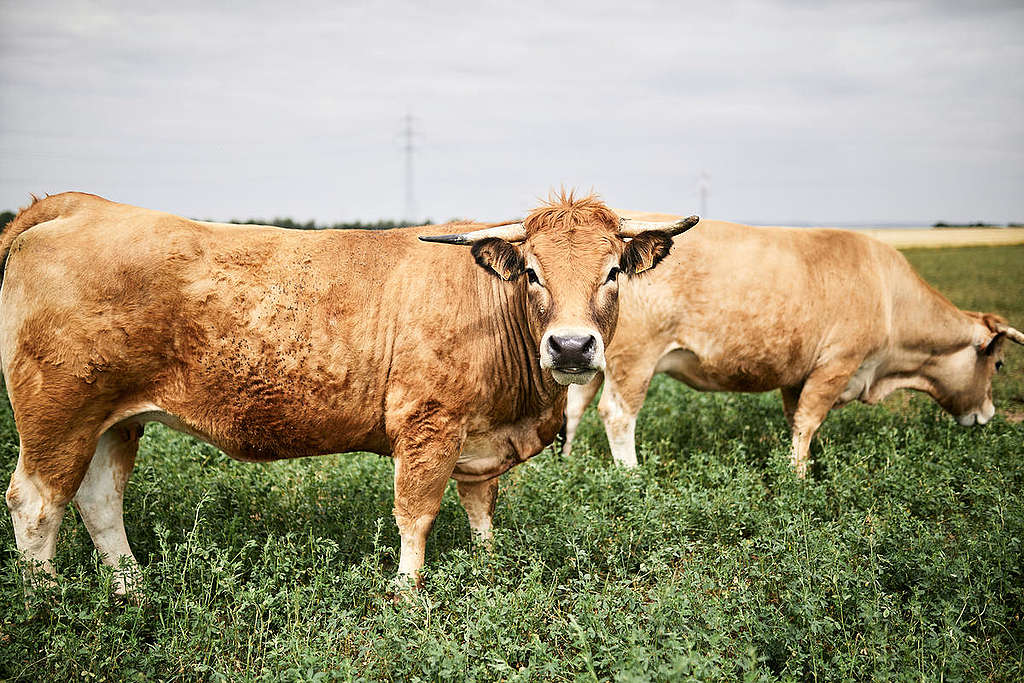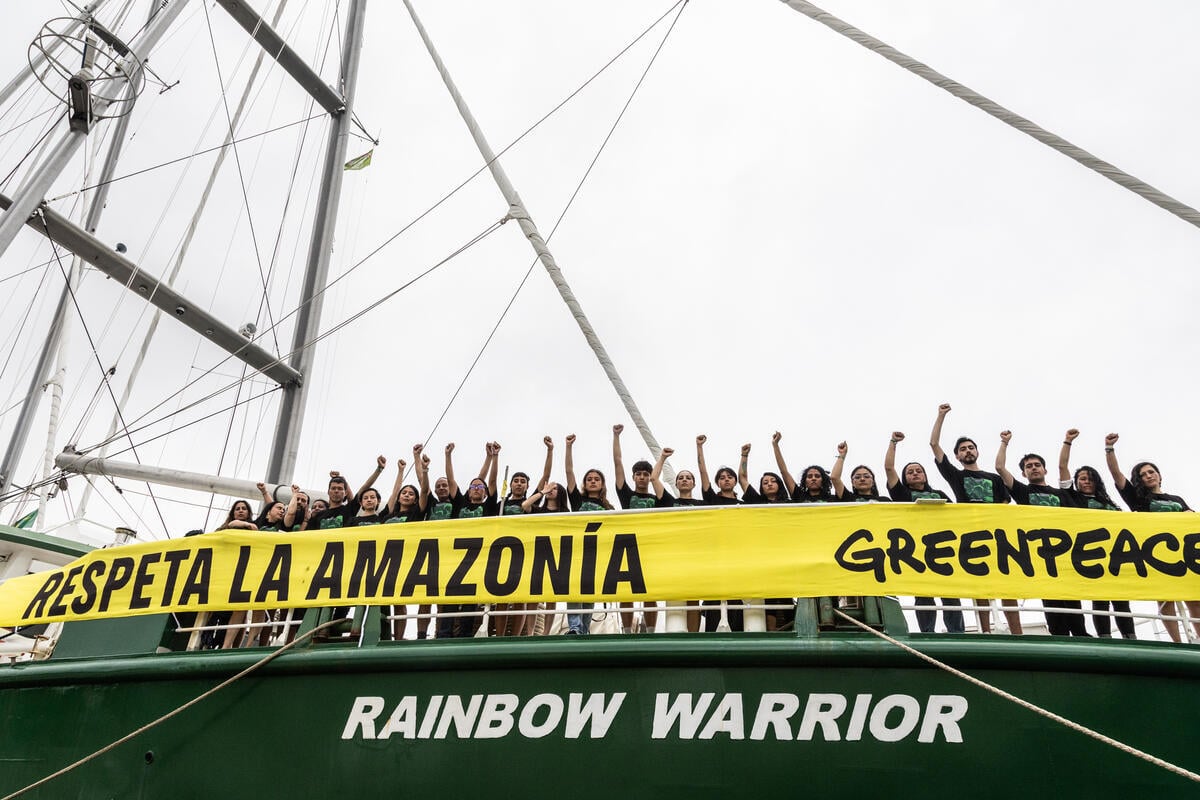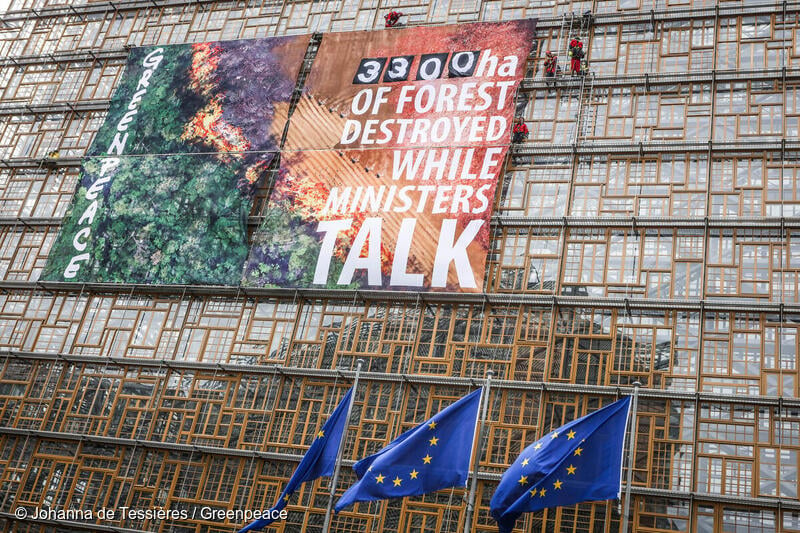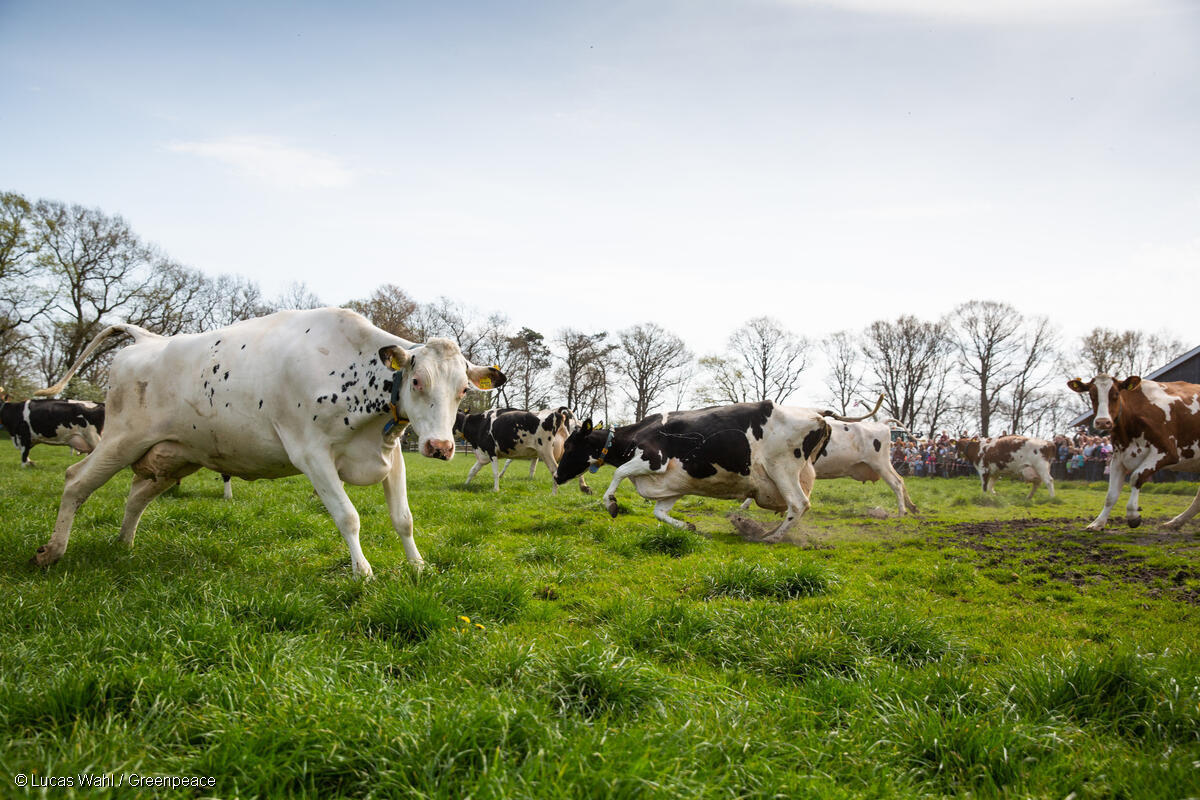Greenpeace priorities for the European Commission’s ‘Farm to Fork’ strategy
Industrial food systems are breaching the planet’s environmental boundaries, driving diet-related diseases and failing to deliver decent livelihoods for farmers, in the EU and beyond.

There is growing scientific consensus on the need to reduce the excessive consumption and production of meat, dairy and eggs, supported by vast amounts of research – including from the IPCC, the EAT-Lancet commission and the RISE foundation.
Animal farming in the EU uses roughly two thirds of agricultural land in Europe and much of it depends on large-scale production and import of feed, such as soy, which is driving forest destruction, human rights abuses and aggressive pesticide use. Industrial animal farming is a huge contributor to the EU’s greenhouse gas emissions and is the main source of nitrogen pollution. An increasing majority of EU crop production heavily relies on monocultures pumped with synthetic pesticides and fertilisers – destabilising ecosystems while locking farmers into a costly relationship with the corporations that sell these seeds and chemicals.
Even when Europeans want to buy more organic, or to eat less meat, or avoid chemical residues in their food, policies and subsidies make unsustainable choices cheaper and more accessible in many places.
EU policies, and in particular the Common Agricultural Policy (CAP), favour large-scale industrial farming which is detrimental to nature, climate and our health. The CAP has failed to reduce greenhouse gas emissions, pollution, and the use of pesticides and fertilisers.
The upcoming Farm to Fork Strategy is an opportunity to set a new direction for European food systems. It must aim for environmentally sustainable production and consumption based on less and better meat and dairy products, and plenty of healthy, seasonal fruits and vegetables. Public policies – from farming subsidies to marketing rules – play a big role in directing consumer choices and an even bigger role in shaping farming practices. Greenpeace is asking the European Commission to propose legislation to shift European farming and diets away from overproduction and overconsumption of meat and dairy. To achieve this, we are asking for legally binding reduction targets, backed up by EU laws.
Read Greenpeace’s priorities for the European Commission’s ‘Farm to Fork’ strategy



